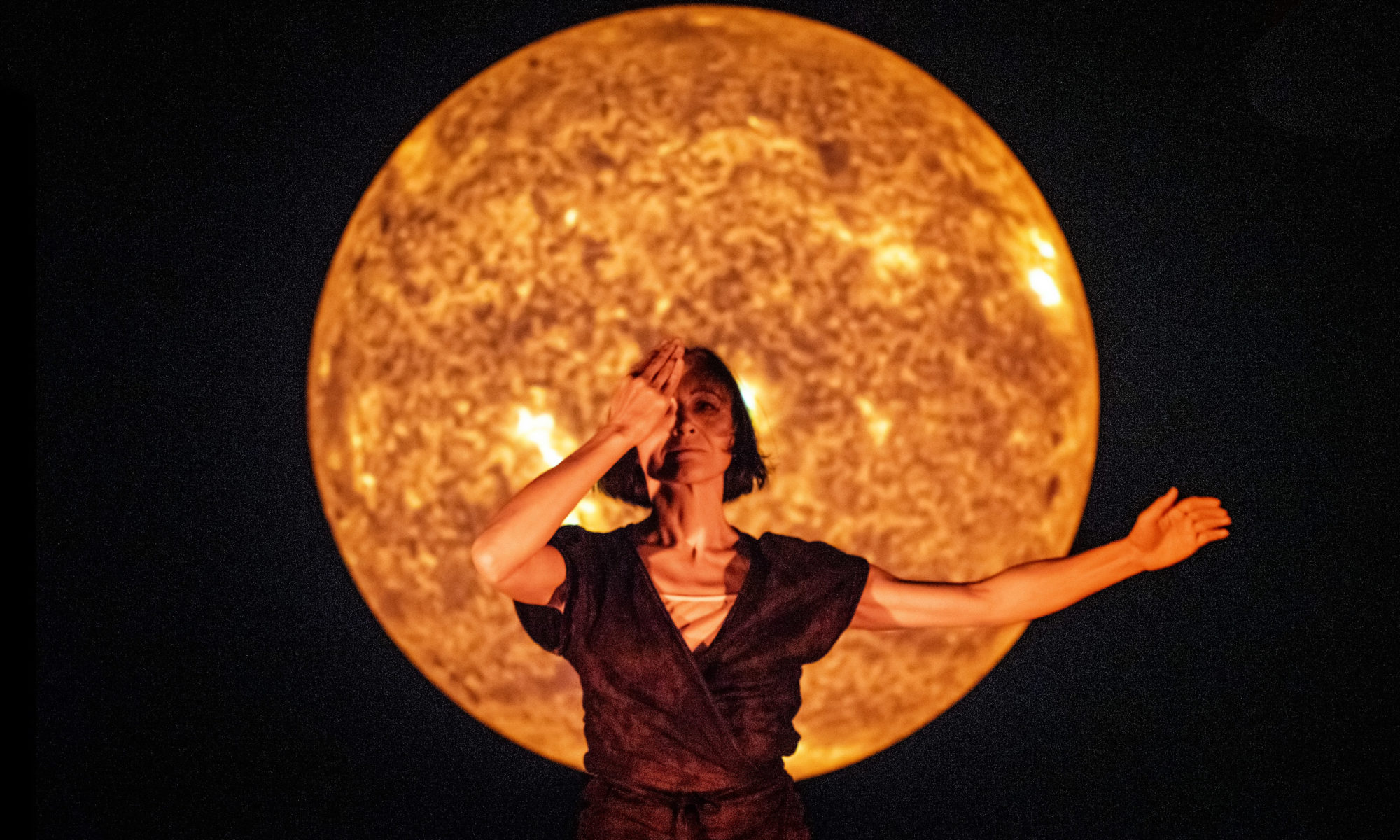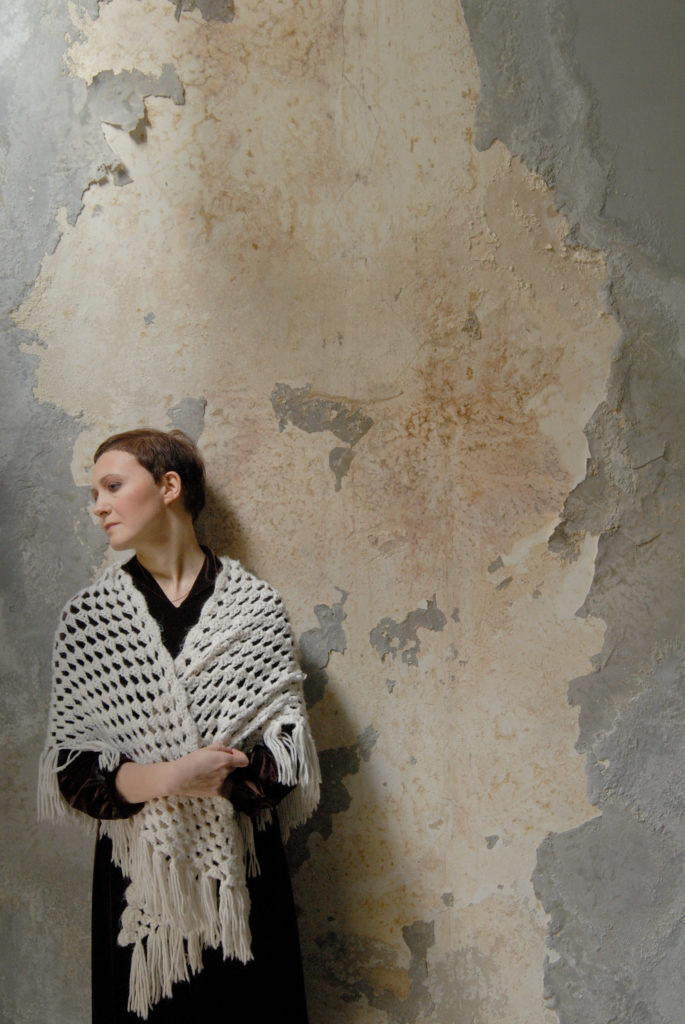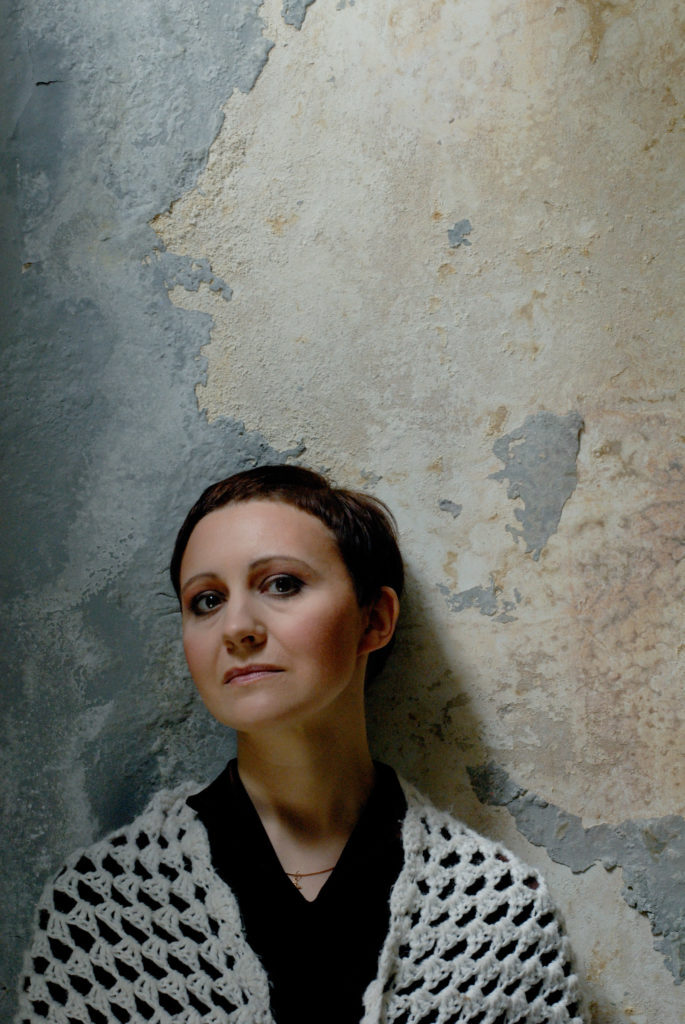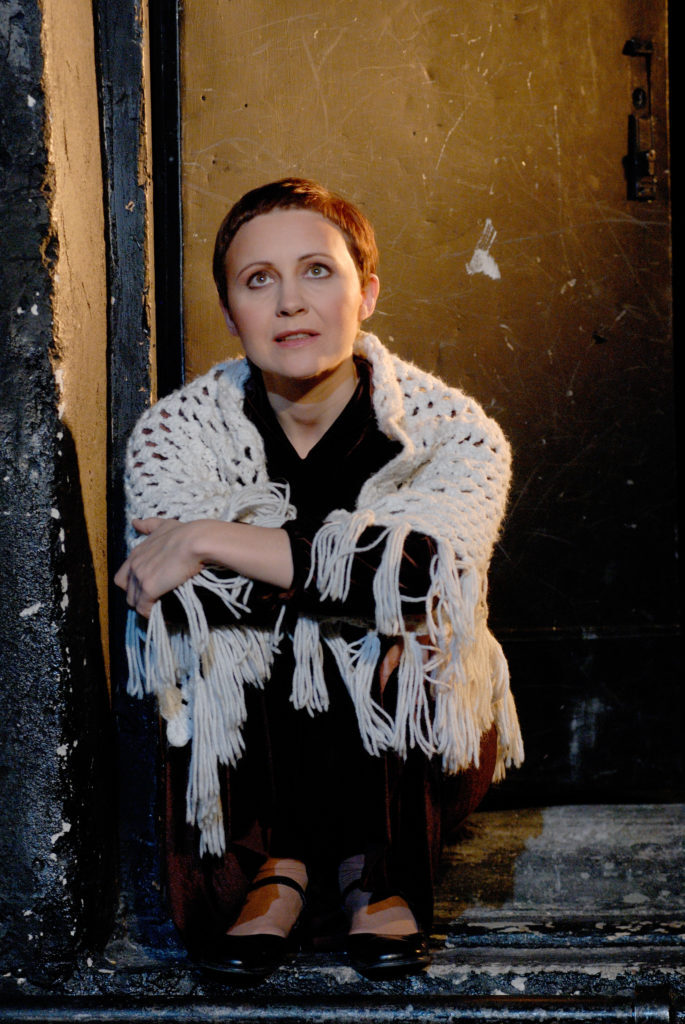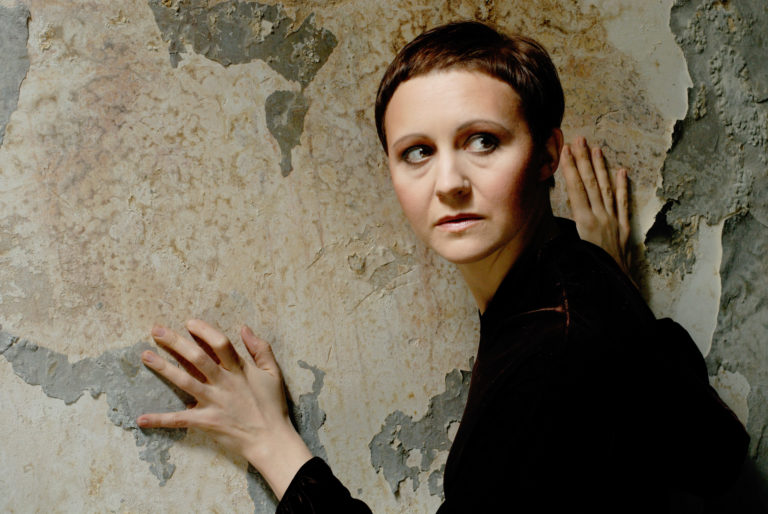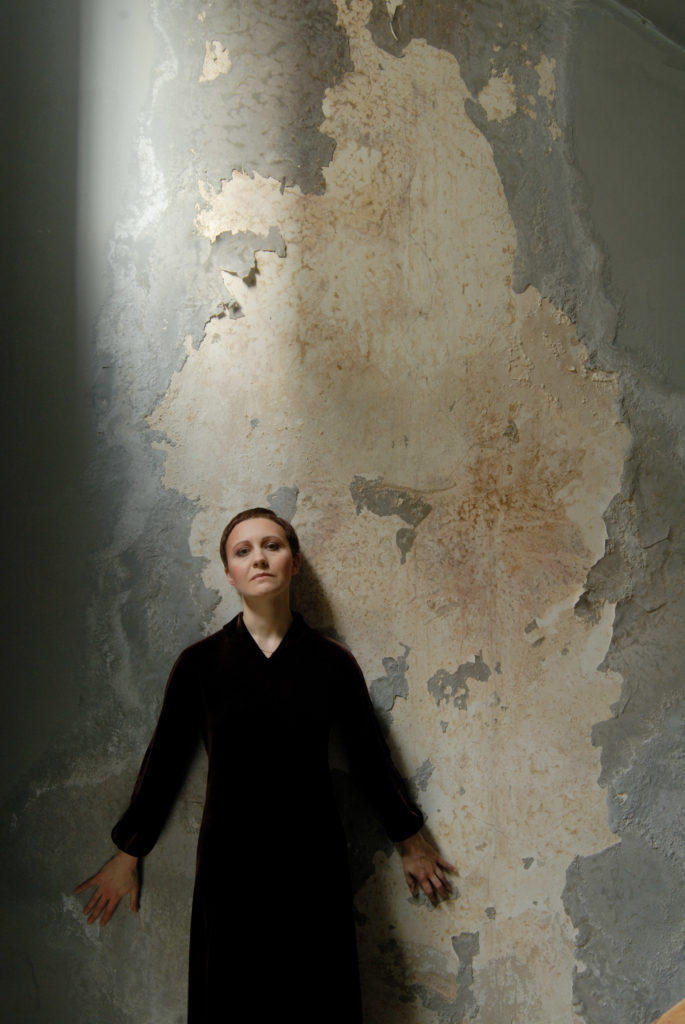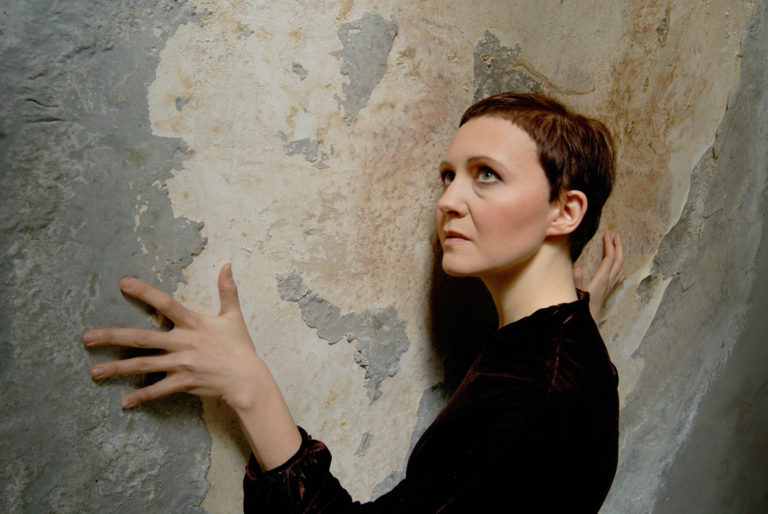Solo performance based on the diaries and poetry of the Lithuanian poet SALOMEJA NERIS (1901-1945)

Author and Actor – BIRUTE MAR
Director – REGINA GARUOLYTE
Composer – ANTANAS KUCINSKAS
Scenographer – JOLANTA RIMKUTE
Choreographerer – BIRUTE BANEVICIUTE
Duration: 1h 10 min
A renewed performance at Solo Theatre in 2018 (previously showcased at the Arts Printing House (Vilnius) and the Lithuanian National Drama Theatre)
…
The solo performance “Poetess” by Birute Mar is about the fate of the brightest Lithuanian poet of the last century, Salomeja Neris, who has already turned into the 20th century universal myth due to the artist’s tragedy.
Although 60 years have passed since the death of Salomeja Neris, her life remains a mystery: accusations of her political mistakes still are questioned. In 1940, she participated in the delegation of Lithuanian representatives to the Supreme Soviet of the USSR (Moscow) to request that occupied Lithuania would be admitted to the Soviet Union. She was commissioned to write a poem glorifying Stalin. The poetess wrote such a poem and read its excerpt in Moscow.
Only in 1994, after Lithuania regained its independence, the last collection of poetry “At the Broad Road” created by S. Neris during the war appeared. It reflected on her tragic state and experiences in Russia, where she was deported during her last short years of life. It is said that her war diaries were passed to somebody else; therefore, there is hope to read them too one day.
The documentary form of the “Poet’s Court” was chosen for the performance: the excerpts from articles accusing and defending S. Neris are heard from the backstage, and even a statement (appearing in the press commemorating the centenary of S. Neris’ birth) is heard that claims the Poetess should have been sentenced to death. Every creator and every human being is judged in the same way.
The play tried to trace how Salomeja Neris changed her ways of thinking with the poems radiating the joy of youth to the poems about Stalin, how this breakthrough took place, what pushed her into it. It is an attempt to rehabilitate the Poet for whom creation was a real and happy life…
“Poetess” is also a pretext and an opportunity to talk about the present, about the Creator and the public’s attitude towards him as it is often hostile. This is a very relevant and modern topic.
FROM PRESS REVIEWS
“It is obvious that Birute Mar is an actress of tragic roles. Today it is a rarity. And a curse. The actress plays Salomeja Neris wonderfully. The performance features two languages in parallel, and many of Neris’ poems have been translated by Ashmatova. Memories of our exalted poets and their tragic fate immediately appear in the Russian consciousness. That is, bilingualism presents itself not only as Salomeja but also as the Poet who emerges from the culture of the past, from symbolism, from the silver age of Russian poetry. And it all dies from the 20th century totalitarianism.”
Marina Dmitrevskaya (“Peterburgskij Teatralny zhurnal” in St. Petersburg Theatre Magazine, Russia, 2006, translated from Russian)
…
“Could Salomeja Neris trust her late and completely different-time doppelgänger? Probably she could. It seems that the actress, director and poet Birute Mar through her own diaries, in her restlessness, in her strange twists of fate found her double. When a fragile actress in a modest black dress appears in a ray of light, when she cannot yet see her features and huge eyes, she can imagine that Salomeja herself was standing on the threshold of the poem in this way. She found herself in the doorway of her world and life, so that after leaving behind all her worshippers and righteous compatriots, she would indulge in the passion and hesitation poured out on paper… ”
Rasa Vasinauskaite “In the Name of a Poet” (“7 meno dienos” – 7 Days of Art, February 18, 2005)
…
“I have been stupefied by Birute Mar’s performance. Those who have seen the passionate improvisations on life and output of Salomeja Neris did not remain indifferent. Some kept silent, some understood nothing and got angry, and yet others turned their heads to hire their tears. Obviously, every truth must be accepted under some conditions.
Within an hour and twenty minutes the story of the poetess was not even played but rather relived. This is it – most of this entire story focuses on the poetess, the author and only then the woman. The woman burnt by the flame of genius. First the author and only then a human being who lived a certain life in a certain era.
It is a paradox, but perhaps because the actress did not play the poetess Salomeja Neris, it was possible to meet our greatest poetess during the performance. There were no trifle solutions which are a sort of a rule in such cases; everything so close, so painfully ours, so recognizable…”
Dovile Zelciute, writer (“Nemunas”, Lithuania, 2005)
Awards
International Jury Prize for creating the role of Salomeja Neris at the “Omadraama” Baltic Theatre Festival in Tartu (Estonia, 2006)
Best Actress Award at the International Solo-Performance Festival “Vidlunia” in Kiev (Ukraine, 2007)
LTV and Radio Prize at the International Solo-Performance Festival “Atspindys” in Visaginas (Lithuania, 2007)
International Festivals and Tours
“Omadraama” International Baltic Theatre Festival in Tartu (Estonia, 2006)
“Vidlunia” International Mono-Performance Festival in Kiev (Ukraine, 2007)
Moscow International One-Actor Festival (Russia, 2008)
Lutsk International Poetry Festival “Magnus Ducatus Poetry” (Ukraine, 2012)
The performance “Poetess” was also presented to Lithuanian communities in Minsk, Kiev, Copenhagen, Bergen, Oslo, Washington, Chicago, San Francisco, Los Angeles, Zurich, Geneva, Stockholm.
